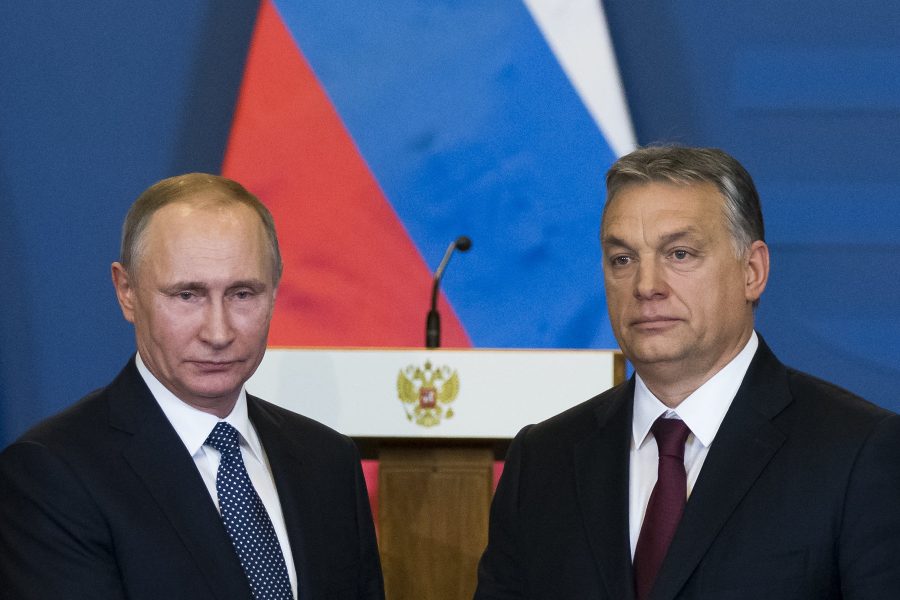Dr. Miklos K. Radvanyi
The Hungarian joke about the light bulb goes like this: How many Hungarians does it take to change a light bulb? The answer: Two. One to hold the eel, the other to screw in the hovercraft.
This simple joke illustrates the psycho-pathology of most Hungarians. The inability to spot reality and to adapt to the frequent changes in their place and role in history have been ingrained for many centuries in the national mentality of permanent victimhood. Hungarian enthusiasm for this perceived historical injustice has resulted in catastrophic blindness to the power of skewed ideas that gradually have given rise to deep inferiority complexes. Even more destructively, the dual curse of victimhood and inferiority complexes have created a dearth of empathy within the Hungarian communities and also toward the non-Hungarian entities throughout Central and Eastern Europe. Finally, the intersection between victimhood and lack of empathy, has guided the Hungarian national mentality into a vacuum, in which Hungarians have been told that they would remain exceptional if they stay away from mixing with other non-Hungarian peoples.
Having been seen as being irredeemably victimized, the average Hungarian has viewed all the problems as factors that exist outside of his or her control. Consequently, facing individual or collective challenges, Hungarians have tended to blame others for their difficulties, instead of taking matters into their own hands to find solutions. Thus, the importance of the individual with his or her free agency has diminished and the blame-others-game has prompted them to nurture pseudo-real grievances that, in turn, have given birth to unhealthy personal developments within the entire Hungarian political, social and moral cultures.
When liberation came in 1990 from the four-and-a-half-decade of Soviet military occupation, the Hungarian people were unprepared for national independence and democracy. For the overwhelming majority of Hungarians, getting rid of the Soviet Red Army has meant the alluring possibility of an American lifestyle, in which suddenly everybody would own a big house and would have separate cars for every family member parking in the driveway. When these dreams have failed to come to fruition with alacrity, nostalgia for the predictable days of the former Communist dictatorship has emerged in a very powerful manner. The only person who understood his countrymen’s inability to change course was Viktor Orban, a young Communist, immature, yet with a sufficiently aggressive infatuation for power and money. His message since 1998, when he first became prime minister, has been a simple one: Hungary does not need Westernization. On the contrary, Hungarians should not integrate into the Free World. Real Hungarians should revive the past and use it as a foundation for uniting all Hungarians inside and outside today’s Hungary. Under the banner of his self-proclaimed “Illiberalism,” Hungary has become in the last twelve years a non-assimilating, non-integrating and self-segregating member state of the European Union and NATO.
With his fraudulently manufactured two-third majority in the Parliament, he has centralized politics, economy, education and information by cutting everything into miniscule and confusing pieces, leading to humungous lies, unimaginable degrees of corruption as well as fraudulent identity between the inglorious past and the miserable present devoid of a realistic plan for a livable future. In this manner, Viktor Orban has transformed Hungary into a hopeless and unredeemable country in the middle of the European continent.
In his most recent public appearance in the annual Balvanyos Summer Free University and Student Camping Festival in Tusnadfurdo (Romanian: Baile Tusnad), in Romania, Viktor Orban delivered a speech, in which he claimed that the world has become increasingly polarized within Europe and beyond. Criticizing everybody, including the United States of America as well as the European Union, but hypocritically defending the Russian Federation’s illegitimate and terroristic invasion of Ukraine as understandable from the Kremlin’s perspective, he stated that only Hungary wants real peace, while the West in general is guided by greedy and sinister self-interests to continue supporting Ukraine which cannot win against the mighty Russian military. To add insult to his fallacious description of the Russia-Ukraine war and its consequences, he predicted, in the manner of Putin and Lavrov, that the “declining West” would diminish with its values by 2030 and the world will witness a new world order. Having continued in the same vein for an extended period of time, he declared that those who do not agree with him are on the wrong side of history and will be thrown away by the newly emerging world. Then, turning more devilish in his analysis, he launched into a racist tirade that cunningly resembled the language of the 1930s and 1940s in Germany as well as in Hungary. Pleading for the purity of the Hungarian race, which has been the code word of Jew hatred and the subsequent extermination of six million European Jews by the Germans and their allies in Central and Eastern Europe, he intoned stentoriously that his government will never agree to the mixing of the races that has become accepted in the Western part of the continent.
In Viktor Orban’s La La Land, Hungary has only rights but no obligations. In the same speech, he expounded on the debt the world owes Hungary. He assured his listeners that Hungary will demand to be paid in full for all the services that allegedly he and his government provided for the Free World. Meanwhile, Hungary is on the edge of economic and financial bankruptcy. Clearly, he must be stopped and reminded of the wise dictum of the late President Ronald Reagan: “We don’t have a trillion dollar debt because we haven’t taxed enough; we have a trillion dollar debt because we spend too much.”
